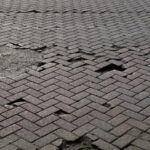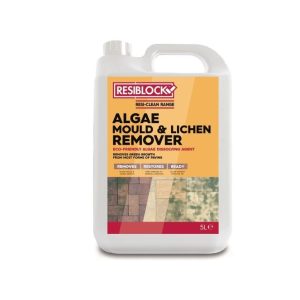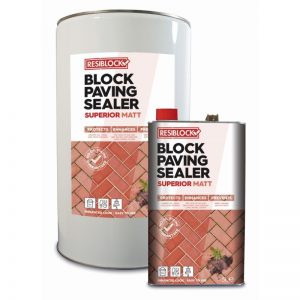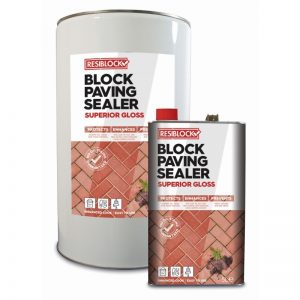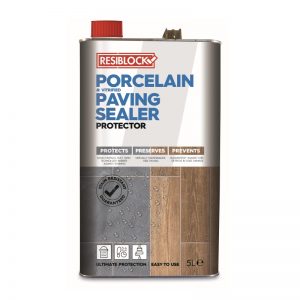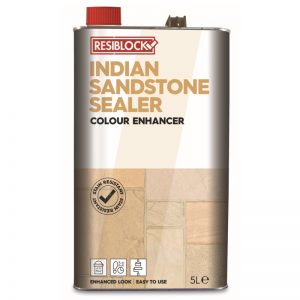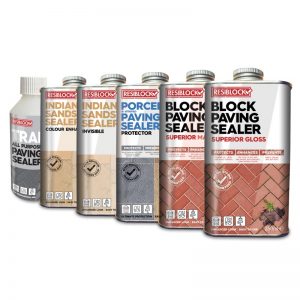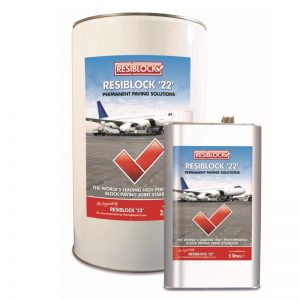Preventing Paving Failure with Resiblock
3rd June 2024When it comes to maintaining commercial paving, one of the most significant challenges is the erosion of jointing sand. This erosion (or paving failure) can lead to a series of problems, including loss of interlock within the paver system, resulting in chipping, spalling, and ultimately, destabilisation of the pavers.
Whether caused by natural forces or human activities such as vacuum sweeping, pressure washing, or heavy traffic, the erosion of sand-filled joints can expedite water infiltration, leading to the degradation and liquefaction of the laying course and subgrades. This structural failure not only incurs high maintenance costs but also poses safety risks, potentially leading to slips, trips, and falls, which could result in costly claims.
- Failure from heavy loads
- Long term damage
- Sand joints failing
How Resiblock Sealing Products Resolve Paving Failure
The key to ensuring low maintenance and reduced risk lies in providing good interlocking within the segmental paving system. This can be achieved by retaining the jointing sand, which is possible with the appropriate application of Resiblock products at the point of installation. By simply applying Resiblock, pavement owners can prevent the high costs associated with maintenance, repairs, and claims, while keeping disruption to a minimum.
Resiblock is widely regarded as Europe’s leading provider of commercial paving sealers. With a vast range of products and unrivalled experience, Resiblock has worked on numerous prestigious sites worldwide, including Heathrow Airport and Disneyland in Hong Kong. As experts in the field, Resiblock continually searches for innovative solutions to address the problems clients face daily.
Preventing Concrete Block Paving Failure
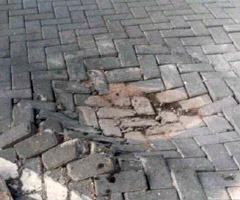 Concrete block paving installed over a DTp Type 1 sub-base is susceptible to water penetration through the paver joints, which can become trapped in the sub-base and sand laying course material. Subsequent traffic can cause deformation. Once saturated, the sub-base and laying course materials lose stability, failing to support traffic adequately. This instability leads to surface deformation and, eventually, paving failure.
Concrete block paving installed over a DTp Type 1 sub-base is susceptible to water penetration through the paver joints, which can become trapped in the sub-base and sand laying course material. Subsequent traffic can cause deformation. Once saturated, the sub-base and laying course materials lose stability, failing to support traffic adequately. This instability leads to surface deformation and, eventually, paving failure.
Typically, concrete block paving can accommodate small elastic deflections and deformations without deterioration. However, when deflection or deformation exceeds 10mm, breakage of the pavers is likely. In severe cases, deformation can reach 50mm, leading to significant breakage. Such failures not only mar the appearance of the paving but also pose safety hazards, potentially leading to trips and falls.
Proven Prevention with Resiblock
Using Resiblock, paving failure can be prevented, avoiding the costs of repairing cracked paving and handling insurance claims related to pavement accidents. Resiblock’s products effectively protect paver joints and stop water penetration, ensuring the durability and stability of the paving.
Numerous case studies demonstrate the long-term benefits of Resiblock’s paver stabilisation solutions. Projects have successfully benefited from reduced maintenance and significantly lower whole-life costs. With more than three decades of experience in stabilising small element flexibly laid paving, particularly at airport and port side pavements, Resiblock’s expertise is recognised as the most definitive in its field.
Talk To Our Team For Advice and Support With Our Product Range
Discuss your upcoming commercial paving project with a member of the Resiblock team and discover how our sealing products can seal, stabilise, and protect all types of paving in various locations. By choosing Resiblock, you can ensure the longevity, safety, and aesthetic appeal of your commercial paving, while also reducing maintenance costs and preventing potential claims.



